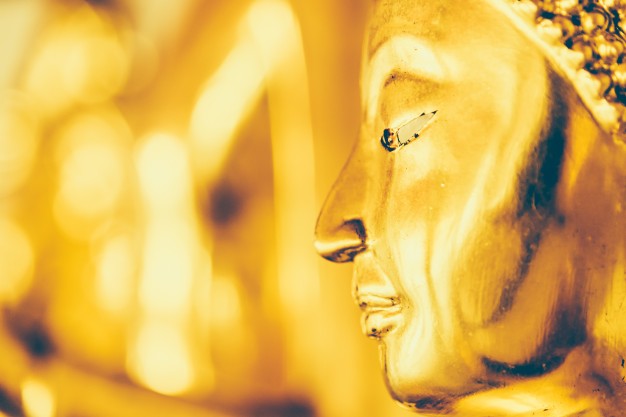Buddhism Has Its Doors Open For Everyone
During the momentous epochs Buddha spent on Earth, he opened the door of his teachings to the entire world and not a specific group of people of a certain caste, color, or race. The clergyman emitted light on spiritual elements to the common man while they offered him some necessities. Unlike religion where one worships an idol or a sculpture, people on the path of Buddhism are thankful for the transition brought by Buddha but also understand that he was just as human as they are. Siddhartha Gautama had struggled hard to find a cure for grief, suffering, physical maladies, and death until one day he was enlightened. ‘Buddha’ is just a title given to Siddhartha Gautama for his achievement to find what lies beyond the physical realm – enlightenment, something he thought others for the rest of his life.
The Road To Self-DIscovery
Buddha’s pedagogy is referred to as the Dhamma (Dharma) meaning the ultimate truth which signifies that Buddha advises his followers to their experience and finds the truth in his teachings instead of blinding believing in him. One of the six elements of the Dhamma is referred to as “Ehipassiko”, which translates to “encouraging investigation.” Even for Buddha’s Five Precepts, he doesn’t refer to them as divine laws, but as effective guidelines to follow for a happy and tranquil life. Buddhism also drives one to take charge for themselves by referring to Buddha as just an enlightened being, and not a God, the savior of all. This shows that just because one believes in the pedagogy of Buddhism doesn’t mean they’ll be protected from anything; to relish the fruits of happiness, one must follow the philosophy.
The Aftermath Of Life

While most religions drive on tales of the universe, good vs evil, and afterlife like heaven and hell, Buddhism considers ‘Nirvana’ – liberation from the cycle of death and rebirth, to be the goal. Buddhism believes in karma or ‘intentional action’. Through positive pursuits, such as moral practices, charitable activities, evolving awareness, or attainting wisdom, one can achieve enlightenment or have a salubrious effect on their current and following life. In Buddhism, the effect of something negative can be gauged by how much suffering it produces. The biggest cause of suffering is one’s pride, the concept that separates us from everything else. When nescience ends, true peace rises. In Buddhism, it is considered that we can reconstruct our reality by shifting our awareness to a greater level of consciousness.
















